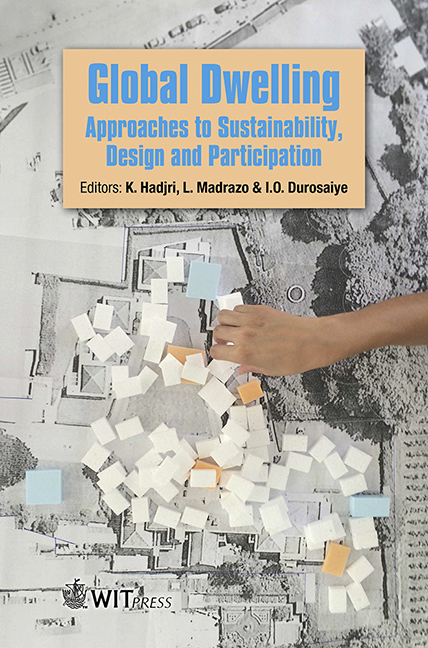Permanent Transience: The Identity Crisis Within Representations Of New Urban Housing
Price
Free (open access)
Transaction
Volume
193
Pages
12
Page Range
3 - 14
Published
2020
Size
358 kb
Paper DOI
10.2495/GD170011
Copyright
WIT Press
Author(s)
A. Evans
Abstract
In the twenty-first century, our way of life is rapidly accelerating. This acceleration can be attributed to a disposable and transient lifestyle, the desire to consume and the accessibility of products, all of which are simultaneously dependent on one another. Rarely, however, do we consider the notion of the disposable and the dynamics of consumption and production in spatial terms. In 2007–2008, during the last economic boom in the UK, house building peaked as 207,370 new homes were constructed compared to 128,680 in 2009–2010 after the economic collapse (Housing and Planning statistics 2010), demonstrating the relationship between the economy and construction, and in turn, production and consumption. This paper considers three key urban issues related to the disposable and transient, production and consumption, and the identity of dwelling. The paper explores issues in housing production to raise concerns of social and community sustainability within capitalist urbanisation of cities. This exploration is carried out through two case studies of different typology, analysed via on-site interviews and discussions with residents. Both case studies were initiated during the last decade, these being Bellevue, Dublin – a large apartment complex on the outskirts of the city centre, and Cranbrook, Exeter – a new suburb to support Exeter’s expanding city (still under construction at the time of writing). The paper then continues by espousing Paul Virilio’s theories of the dromosphere and picnolepsy, and drawing key observations from the case studies interrogates the relationship between speed, the disposable consumable and identity within housing. The paper contests the concept of dwelling as mass product, arguing that the consumeristdriven catalogue browsing approach to home ownership by definition separates the very essence of dwelling from community. In conclusion, this paper attests that slow urbanism, achieved by critical reframing of production, consumption and identity within existing and future communities could successfully improve social sustainability in the thickening urban network of globally connected cities.
Keywords
socio-cultural identity, housing identity, slow urbanism, spatial production, spatial consumption





